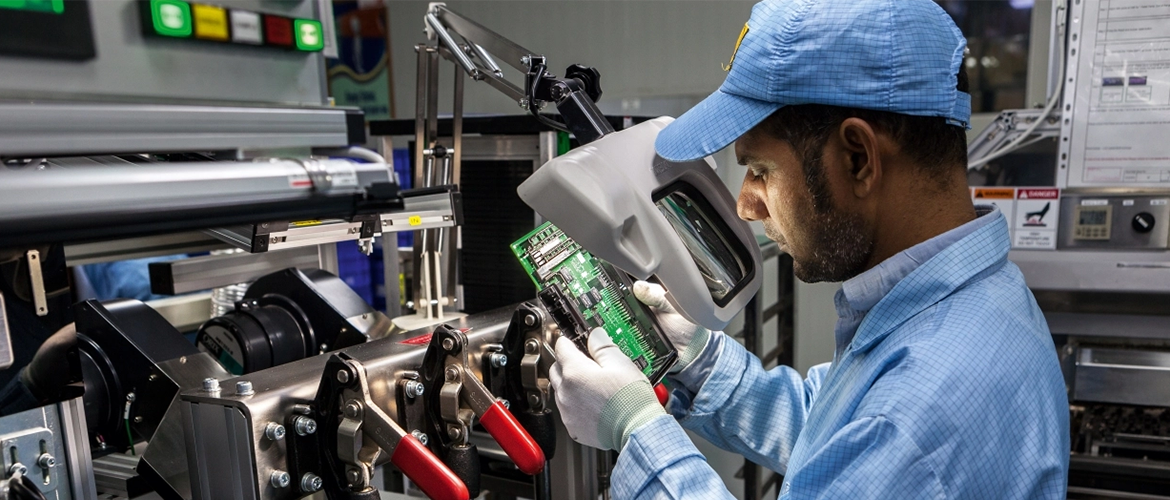Being ‘Vocal for Local’ – Part I
June 23, 2020 | Expert Insights
In this two-part series, the author analyses the recent comments of Prime Minister Narendra Modi on being ‘vocal (demonstrative) for local (domestic products)’. However, the NDA government is also committed to ‘Make in India’, which involves both foreign brands being produced in India and foreign investment in Indian brands. Is there a contradiction in the government’s stance? Here, the author amplifies on the PM’s statement and the government’s continued commitment to encourage FDI (Foreign Direct Investment).
On May 12, 2020, Prime Minister Narendra Modi in his address to the nation, urged Indians to be ‘Be vocal for local’, suggesting that Indians should buy local products with pride.
DEFINING SWADESHI
The main problem with the ‘buy local’ theme is that it suggests discrimination of businesses, based on an ill-defined criterion. What exactly is a local product? A product manufactured locally from local resources. And, a product manufactured abroad with foreign resources is a foreign product. However, many global products are today sourced from multiple agencies and then either assembled or produced locally. Are those local or foreign?
In free markets, consumers should be empowered to make their own choices on criteria such as price, availability, and quality, no matter where the products are made or sold. Is India's commitment to free-market and globalisation now in question?
The PM’s call for self-reliance was clarified by BJP spokesperson and Rajya Sabha member G.V.L. Narasimha Rao while speaking to the news agency PTI. He said there would not be a government directive to only buy local products, but that people may themselves see merit in buying items of good quality, made in our country. He also stressed that the PM's definition of ‘local’ meant that it was not just about products made by domestic companies, but that any item, as long as it was manufactured in India, fell within the definition.
Assessment
This clarifies two issues: First, items manufactured by foreign companies and MNCs, are still ‘local’ products, provided they are manufactured in India. Thus, McDonald's burgers, Levi’s jeans, Mercedes-Benz automobiles and LG air-conditioners, qualified as local products, provided they are manufactured in India. Second, while the government would not be issuing any official directive, there is a stated preference for locally produced products of good quality. Thus, while citizens may be encouraged to buy Kanjeevaram handwoven silk saris, Raymond fabrics and Amul ice-cream because of their excellent quality, there would be no compulsion to buy TATA Nano or fly Air India, if their quality were suspect.
'MAKE IN INDIA' POLICY
‘Make in India’, is the name for the 'swadeshi' movement launched by the government on September 25, 2014, and initially covered 25 sectors of the Indian economy. The intention was to encourage companies to manufacture their products in India so as to promote investment in Indian manufacturing. A year later, India had emerged a top destination for FDI (Foreign Direct Investment) attracting U.S.$60 B. As per current policy, 100% investment is now permitted in 100 sectors of the Indian economy, with exceptions for space (74%), defence (49%) and news media (26%).
CONTINUED GOVERNMENT COMMITMENT
On April 1 this year, the empowered committee of secretaries issued a government notification for Production-Linked Incentive (PLI), to further encourage FDI. In addition to providing additional incentive on exceeding production targets for five years, the committee removed other contentious clauses to make an investment in India more attractive. It is hoped that this push will pave the way for Apple, Samsung, Foxconn, Oppo, Vivo and Flextronics to commence local production of next-gen smartphones in India. The vision is to make India an export hub for next-gen smartphones. Currently, India exports about US$ 3B smartphones every year, and it is hoped that with the additional FDI, India will be able to export US$ 100 B by 2025.
INTERNATIONAL COMMITMENT
Mr Modi, in his 2018 speech at the World Economic Forum, Davos, slammed rising trade protectionism. Unlike other leaders like the U.S. President Donald Trump, Mr Modi did not defy the international global architecture with multilateral institutions like the WTO. Both Mr Modi and Chinese President Xi Jinping have independently championed free trade and open markets at Davos. Mr Modi culminated his speech eloquently with the Sanskrit phrase, 'Vasudhaiva Kutumbakam', meaning the world is one family, and underscoring that belief is key to eradicating the fault lines of today.
Assessment
The ‘Make in India’ initiative was a grand proposal, with ambitious targets, particularly in the manufacturing sector. Five years after its launch, many of the initial targets have slipped. The national economic slowdowns, poor implementation of the policy, and global trade protectionism have adversely affected its implementation. Despite this, the policy still holds prospects for India in the long term.


